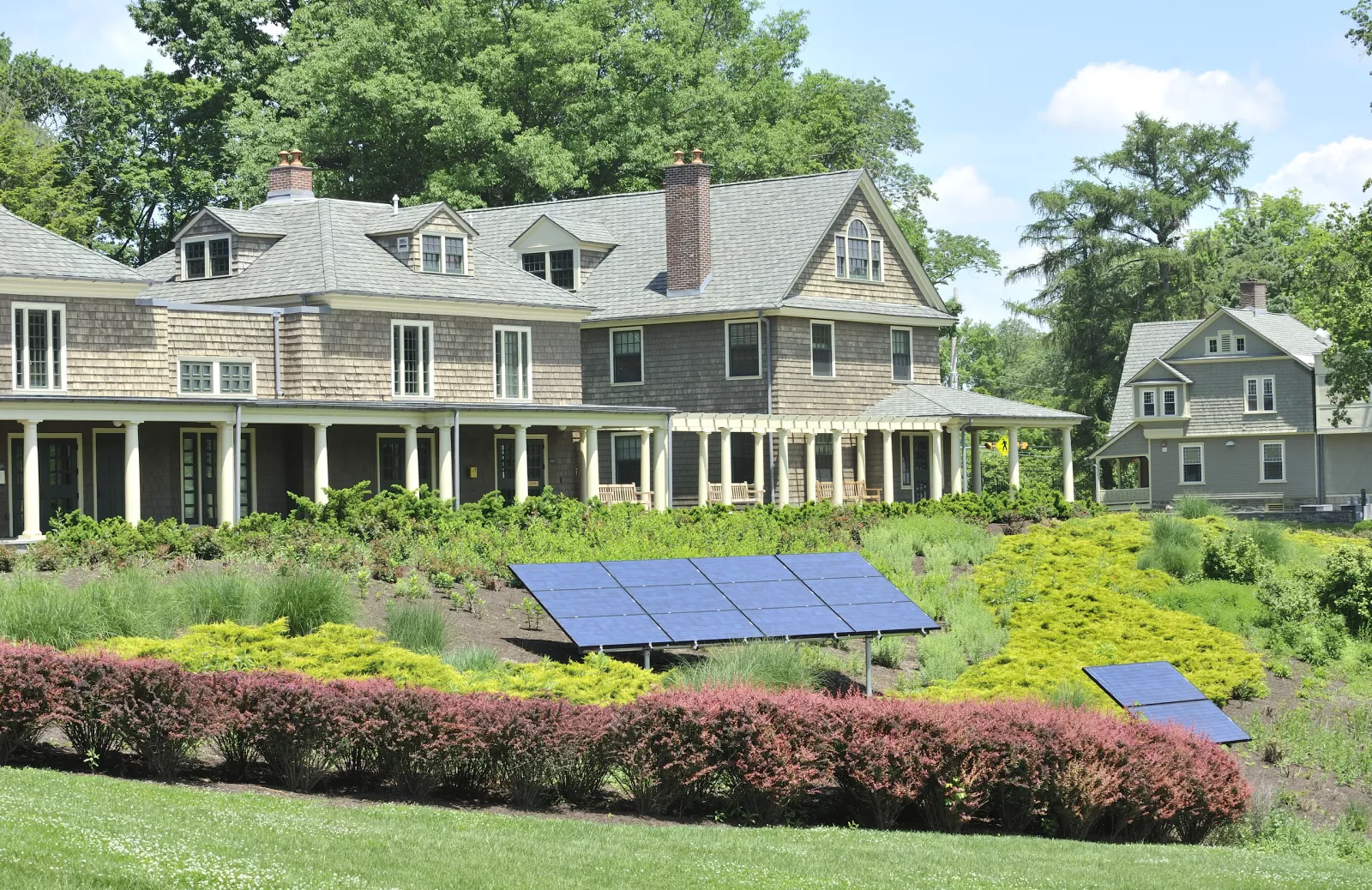
From transitioning the transportation fleet to electric vehicles, to purchasing power from renewable suppliers and funding reforestation projects, Bryn Mawr is working aggressively to meet its goal of carbon neutrality by 2035.
The College is also the intellectual home of several faculty members whose research explores topics such as the ecosystem of coastal wetlands and the role they play in carbon sequestration; sea level rise and carbon burial; how local activism created a culture of sustainability in Germany; Russian literature and film in the wake of the Chernobyl accident; the rights of non-human living things; and more.
Add in students and student groups dedicated to promoting a greener future, and the amount of environmentally focused activity happening on campus becomes almost dizzying.
At Saturday’s inauguration ceremony, on a stage lined with Bryn Mawr’s iconic lanterns, President Wendy Cadge announced that the College will be hiring its first-ever sustainability coordinator. The goal is to expand upon the College’s current sustainability efforts and have the campus serve as a “sustainability lab” where all those interested in this important work can come together to have local and global impacts.
“All of the lanterns across the stage, for example, require a separate light source - a match and a candle or a battery powered candle. In talking with faculty and staff and looking at the world today, I think it is time for a solar powered lantern, one with a more environmentally sustainable power source,” she told the crowd.
The sustainability coordinator will partner with faculty to develop the Bryn Mawr Sustainability Fellows program.
As part of the program, three to five student fellows will be selected each semester (including the summer) to identify and move forward concrete institutional level efforts around sustainability. Each fellow will be paid for their work and given seed funds through which to identify, pilot, and / or further develop a sustainability initiative on campus. The results of these projects will be reported on regularly to the College community and, ideally, will be designed iteratively so they build on previous efforts. The hope is to have the first cohort of fellows named for the summer of 2025.
"A dedicated, full-time sustainability coordinator is crucial for synthesizing and accelerating College efforts toward our goals,” says Associate Professor of Geology and Environmental Studies Don Barber. “The coordinator also will be a functional embodiment of Bryn Mawr's commitment to environmental stewardship and the well-being of Earth's inhabitants."
Bryn Mawr College is silver star rated by the AASHE Sustainability Tracking, Assessment & Rating System (STARS). This prestigious recognition highlights the college’s commitment to sustainability across a range of areas, including operations, academics, and community engagement.
The Association for the Advancement of Sustainability in Higher Education (AASHE) developed STARS as a transparent, self-reporting framework for colleges and universities to measure their sustainability performance. The system assesses a wide array of sustainability-related efforts, including energy use, waste reduction, water conservation, and diversity initiatives. A Silver Star rating places Bryn Mawr College among institutions that have made significant strides in incorporating sustainability into their campus and operations.
Highlights of Bryn Mawr's Current Commitment to Sustainability
-
Green Energy: Bryn Mawr sources a substantial portion of its energy from renewable sources, helping to reduce its carbon footprint and lead the way in clean energy adoption. The College also incorporates energy-saving technologies and materials in all new construction and major renovations.
-
Sustainable Transportation: The college promotes environmentally responsible modes of transportation through EV charging stations, the growing use of electric vehicles in the College’s fleet of vehicles, and our SEPTA Pass program for students.
-
Waste Reduction: Through composting programs, recycling initiatives, and the use of eco-friendly materials, the college has made remarkable progress in reducing waste across campus.
-
Sustainable Academics: In addition to operational initiatives, Bryn Mawr integrates sustainability into its curriculum, offering courses that emphasize environmental awareness, climate change, and eco-social justice.
For more information: